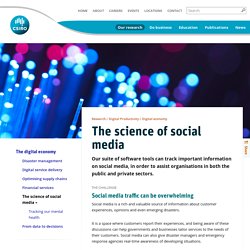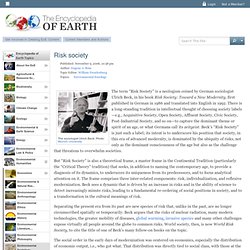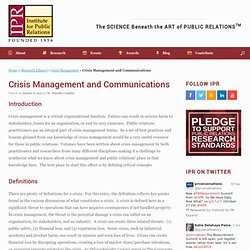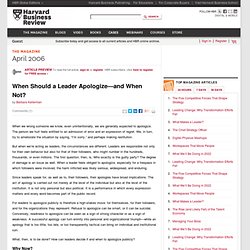

The science of social media - CSIRO. Our suite of software tools can track important information on social media, in order to assist organisations in both the public and private sectors.

Social media traffic can be overwhelming Social media is a rich and valuable source of information about customer experiences, opinions and even emerging disasters. It is a space where customers report their experiences, and being aware of these discussions can help governments and businesses tailor services to the needs of their customers. Social media can also give disaster managers and emergency response agencies real-time awareness of developing situations. But with 13.5 million Facebook accounts and over 2.7 million Twitter accounts in Australia, monitoring and analysing posts can be very resource intensive. Social media monitoring and analysis We have developed a suite of software tools that support social media monitoring and analysis. Textual analysis natural language processing data mining data visualisation software development.
Corporate Reputation Review - Protecting Organization Reputations During a Crisis: The Development and Application of Situational Crisis Communication Theory. CERC. Theconversation. For Malaysia Airlines, every hour counts as it deals with the loss of flight MH370 with 227 passengers and 12 crew on-board.

The first 48 hours of a crisis are the most critical for an organisation as it aims to reassure people that it can deal with, and resolve, the crisis. It is in this time period that people will decide whether or not to support the organisation in trouble. A failure to act decisively and with leadership can result in inflaming outrage and blame. For Malaysia Airlines, that time is now up. It is now entering a reputational minefield. Flight MH370 lost contact with air traffic controllers at 2:40am local time (5:40am AEDT) on Saturday after it left Kuala Lumpur and headed for Beijing. The worst-case scenario of an accident is compounded by the uncertainty of what happened, where it happened and why it happened.
In the context of crisis management and communication, this information vacuum equates to a doomsday situation for the airline. Tony Fernandes Will Save AirAsia Brand: McLean. Global Policy Journal - Practitioner, Academic, Global Governance, International Law, Economics, Security, Institutions, Comment & Opinion, Media, Events, Jou. Fabrizio Cantelli, Naonori Kodate, Kristian Krieger - 9th May 2010 The concept of the World Risk Society (Beck, 1998) is often associated with major disasters and accidents.

And indeed, safety from the forces of nature can no longer be taken for granted even by the population of industrialised countries, as an increasing number of floods, hurricanes and winter storms over the last two decades demonstrates. Similarly, industrial accidents, such as Chernobyl, Sandoz and Bhopal, cause severe and lasting damages to human health and the environment (Perrow, 1999). In view of accelerating technological change and increased competitive pressures, as well as climate change, it is reasonable to expect that such disasters will continue to undermine the safety of the population and commentators will keep on referring to the idea of a ‘risk society’.
While the association of the concept of a risk society with disasters is not wrong, it is incomplete. New Partnerships on the Horizon? Voice matters. Risk society. The term “Risk Society” is a neologism coined by German sociologist Ulrich Beck, in his book Risk Society: Toward a New Modernity, first published in German in 1986 and translated into English in 1992.

There is a long-standing tradition in intellectual thought of choosing society labels—e.g., Acquisitive Society, Open Society, Affluent Society, Civic Society, Post-Industrial Society, and so on—to capture the dominant theme or spirit of an age, or what Germans call its zeitgeist. Beck’s “Risk Society” is just such a label; its intent is to underscore his position that society, in this era of advanced modernity, is dominated by the ubiquity of risks, not only as the dominant consciousness of the age but also as the challenge that threatens to overwhelm societies. Separating the present era from its past are new species of risk that, unlike in the past, are no longer circumscribed spatially or temporarily. Further reading Citation Rosa, E. (2006). Veil et al 2011 social media and risk lit review 2011. Hazelwood Inquiry Report. Peter Sandman website: Home page. Crisis Management and Communications - Institute for Public Relations. Introduction Crisis management is a critical organizational function.

Failure can result in serious harm to stakeholders, losses for an organization, or end its very existence. Public relations practitioners are an integral part of crisis management teams. So a set of best practices and lessons gleaned from our knowledge of crisis management would be a very useful resource for those in public relations. Volumes have been written about crisis management by both practitioners and researchers from many different disciplines making it a challenge to synthesize what we know about crisis management and public relations’ place in that knowledge base. Definitions There are plenty of definitions for a crisis. Effective crisis management handles the threats sequentially. Crisis management is a process designed to prevent or lessen the damage a crisis can inflict on an organization and its stakeholders. Pre-Crisis Phase Prevention involves seeking to reduce known risks that could lead to a crisis.
SITUATIONAL CRISIS COMMUNICATION THEORY - Timothy Coombs. SOCIAL MEDIA AND CRISIS MANAGEMENT - Timothy Coombs. When Should a Leader Apologize—and When Not? When we wrong someone we know, even unintentionally, we are generally expected to apologize.

The person we hurt feels entitled to an admission of error and an expression of regret. We, in turn, try to ameliorate the situation by saying, “I’m sorry,” and perhaps making restitution. But when we’re acting as leaders, the circumstances are different.